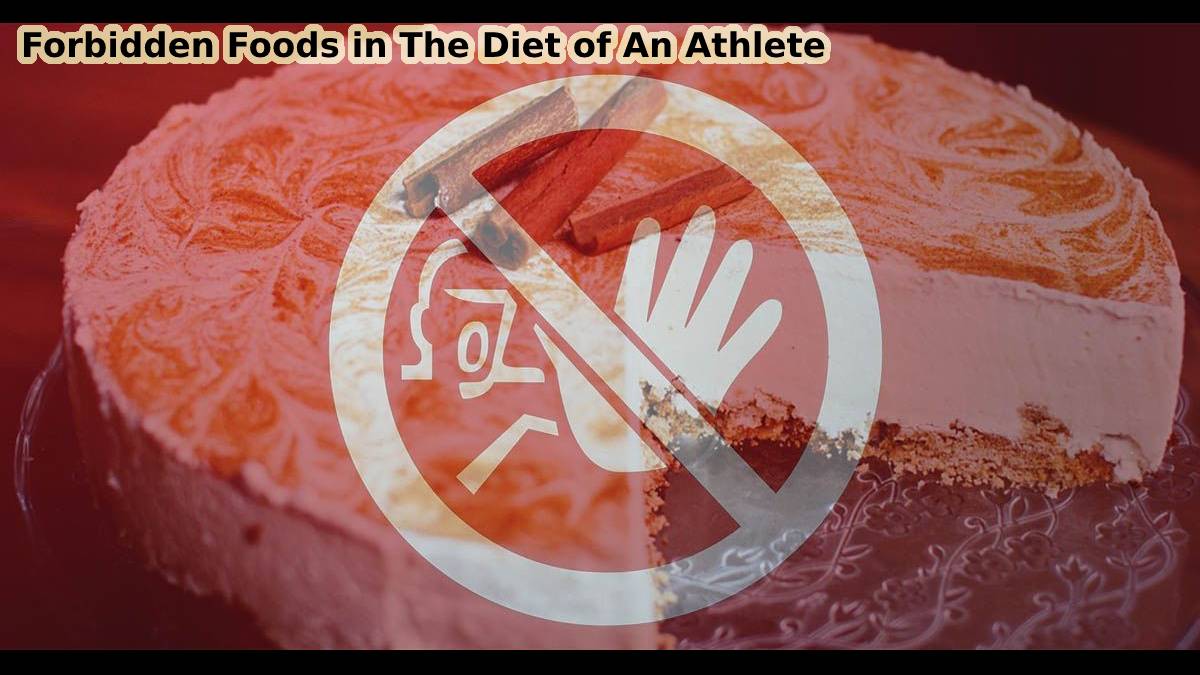Forbidden Foods in The Diet of An Athlete – Nothing you eat once a year can do you too much harm, but whatever diet you follow. There are foods that we do not recommend beyond a treat from time to time.
Table of Contents
REFINED SUGAR
It is sucrose (99%) obtained from sugar cane or sugar beet through a complex refining process that denatures the original sugar. It only provides energy (4 calories per gram) and an intensely sweet taste. The problem is that being a simple carbohydrate, it is quickly absorbed and causes an increase in blood glucose with the risk of subsequent hypoglycemia. What can make your diet fail or cause you the hated “bird” during exercise?
SALTY SNACKS
French fries, honey peanuts, crusts, stars, nachos, etc. Most do not go below 500 calories per 100 g in the form of fat; they have a high sodium content, they do not have vitamins or minerals, but they add artificial colours and flavour enhancers such as glutamate, which means that you cannot eat just one. It is preferable to take some natural unroasted nuts, raisins, popcorn or olives to succumb to an artificial product.
ALCOHOL
It only provides many empty calories (7 calories per gram ingested) and consumes vitamins and minerals to be metabolized. In addition to damaging the liver, it causes dehydration and increases the number of free radicals that damage cells. You can have an alcoholic beverage from time to time, preferably a beer, a glass of red wine or a cider, which have a low alcohol content and contain phytochemicals such as resveratrol from grapes or hops from beer, which protect your health.
INDUSTRIAL BAKERY
They contain palm and coconut oils, which, although they are vegetable oils, are a type of saturated fat harmful to health. Add refined flours, simple sugars, and artificial colours, and you don’t have much reason to enjoy a scone or cupcake.
CAVIAR
Authentic caviar obtain from sturgeon roe, although there are also caviar substitutes with lumpfish roe, capelin or the giant rear roe of salmon and trout. The problem is that it provides up to 244 calories per 100 g in the form of 300 g of cholesterol and a large amount of sodium (1,940 g). Few foods offer so much cholesterol in such a small amount.
TRINKETS
If you want to know what jellies, marshmallows, etc., made of, look at their composition: sugar, glucose and dyes—lots of calories and no nutritional value.
PRECOOKED FOODS
Lasagna ready to heat in the oven, tortilla that you have to take out of the plastic, fish sticks, empanadas or “homemade” croquettes that sold ready to fry… These foods are very convenient, but you better learn to cook if you want to enjoy a good diet. They contain more fat than usual (even the light version), more salt, more dyes, and more preservatives. Also the meat or fish they have is not of the quality that you can choose if you make these meals at home.
COLD CUTS
Do you trust mouse-faced bologna? Most deli meats in the delicatessen have nothing to do with the pig from which they claim to have originated. Industrialization processes have made cold meats such as York ham a mass of pink gelatin, rich in sugars, starches, salt, phosphates, etc. Moreover highly inadvisable for a healthy diet.
BARBECUES
If you want to recognize why there are so many obese people in North America. Count the number of barbecues per capita. Fortunately, Spanish barbecues are more natural but rich in fatty foods such as chorizo, bacon, black pudding, chops, etc. Without forgetting that charred meat contains benzopyrenes, carcinogenic substances implicated in the appearance of tumours.


